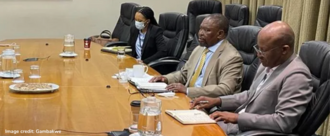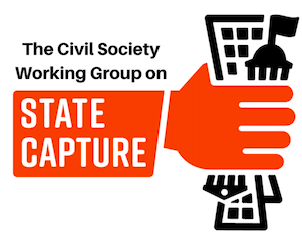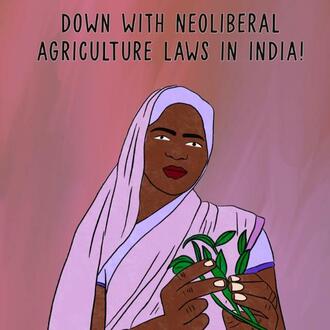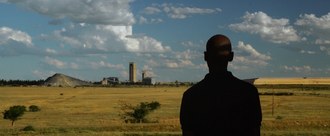- Featured
- Clean air
- Climate justice
- Consumer Rights
- Corporate Accountability
- Data access
- Early Childhood Development
- Economic fairness
- Education
- Electoral fairness
- Environmental justice
- Food justice
- Gender based violence
- Grants/social assistance
- Health
- Housing and infrastructure
- Industry interference
- Land Justice
- LGBTQIA+ rights
- Media/ information access
- Public transport
- Racism
- Reparations
- Safety
- Sanitation
- Service Delivery
- Sexual and Reproductive Rights
- Social justice
- Unemployment
- Womxn's rights/ gender equality
- Workers' rights
- More
-
Communities Before Corporations: Reform South Africa’s Mining Law for Justice and AccountabilitySouth Africa’s mineral wealth continues to enrich corporations and elites while leaving mining affected communities in poverty, with broken ecosystems and unfulfilled promises[6].The ongoing MPRDA Amendment Bill offers Parliament a historic opportunity to correct this imbalance, to center justice , transparency and community participation in mining governace[8]. We believe Parliament must reaffirm its constitutional duty under Section 59(1)(a) , to facilitate public involvement in the legislative process, especially for communities most affected by extractive industries[9]. As MACUA, WAMUA, and YAMUA, together with our allies and supporters. We demand a mining future that puts people before profit, ensures gender equity, environmental protection, and accountability, and restores community control over land and resources.[7]. A call for Action : After signing, Please share this petition widely. Tag @ParliamentofRSA, @DMRE_ZA, and @GwedeMantashe1 to demand urgent action for mining affected communities. Parliament must listen to the people, not mining companies! Sources / References: • MACUA, WAMUA, YAMUA. Petition to Parliament: Calling for Justice for Mining-Affected Communities (2025) • Constitution of the Republic of South Africa, 1996 – Sections 59, 195, and 24 • National Assembly Rules, Rule 347 (2024 revision) • Mineral and Petroleum Resources Development Act (MPRDA) and Amendment Bill (2025) • National Environmental Management Act (NEMA)280 of 300 SignaturesCreated by MACUA Mining Affected Communities United In Action

-
Ban gambling adverts + sponsorships now!People in South Africa now spend more on gambling than they do on any other recreational activities [6]. Many people gamble because their salaries are not enough [7]. It is concerning that such a high percentage of people are into gambling. This is an urgent matter, and the government must start moving quickly to curb this crisis. Gambling companies have invaded our communities; they sponsor community runs, do charity work, aggressively put their logos in schools, and indirectly advertise to children [8]. The current National Gambling Act states that gambling companies are not allowed to place advertisements in media directed to children [9]. Yet, gambling companies are buying kids' soccer uniforms with their logos, turning our children into walking billboards. The more visible the thing, the more attention it attracts, and this is why we find ourselves in this situation as a nation. These companies should stop involving themselves in our cultural, educational, and sporting events. Their sponsorship is an advertisement disguised as social development. They are attempting to create good product imagery and consequently rope people into gambling. We have to remember that the charity work and sponsorships that gambling companies do in our communities are funded by extracting money from the very same communities. In the end, gambling companies are the real winners. Gambling, like smoking, harms our society. South Africa needs to ban gambling ads and sponsorships, just like we did with tobacco. While sports, arts and culture events often need sponsors, there are plenty of sponsors out there, and evidence suggests banning sponsorship does not harm sport [10]. Cricket in South Africa was heavily sponsored by the tobacco industry in the past, but they voluntarily ended the sponsorship out of principle. Protecting our communities from harm should always be the priority. If we want to reduce gambling, it makes sense to start by reducing the temptation to gamble [11]. South Africa also needs to join the global call to restrict gambling advertisements. Countries like Kenya have started implementing tighter gambling regulations to protect their young people from gambling addiction [12]. We need to come together to combat this gambling crisis we find ourselves in. We are already facing so many issues as a nation, and we cannot afford to add another one. We call for the government to ban gambling advertisements and stop the infiltration of betting sponsorships into our Sports, Arts and Culture, as well as our education. References 1. Every single billboard on R21 to OR Tambo Airport is illegal, says Sanral, Anna Cox for Daily Maverick, 21 July 2025. 2. Gayton McKenzie slammed for ‘promoting’ gambling in vulnerable communities, Zama Nteyi for Sunday World, 16 July 2025. 3. Are gambling advertisements putting minors at risk? Mayibongwe Maqhina for IOL, 09 May 2025. 4. Online gambling and betting advertising is non-compliant with Gambling Act — minister, Ina Opperman for The Citizen, 09 May 2025. 5. Govt to appoint gambling council as it looks to crack down on ‘noncompliant’ ads, Na'ilah Ebrahim for News24, 08 May 2025. 6. Appetite for gambling and betting grows https://www.statssa.gov.za/?p=18746, Statistics South Africa, 05 September 2025. 7. Betting on desperation: How the poor are fueling SA’s gambling boom, Jeremy Maggs for MoneyWeb, 11 June 2025. 8. Hollywood Bets sponsors soccer kids, David Pienaar for the Alberton Record, 01 May 2017. 9. National Gambling Act 7 of 2004 https://www.gov.za/sites/default/files/gcis_document/201409/26994.pdf. 10. Tobacco free sports. play it clean, World Health Organisation, 2002. 11. Gambling by World Health Organisation, 2 December 2024 https://www.who.int/news-room/fact-sheets/detail/gambling. 12. Kenyan MPs Push for Tougher Gambling Regulations in the New Gambling Control Bill, Vanja Mitic for World Casino News, 31 July 2025.684 of 800 SignaturesCreated by amandla mobi member

-
Demand Justice for Listeriosis Victims: #TigerBrandsMustPayOf the approximately 1,000 confirmed cases of listeriosis associated with this outbreak, at least 465 were pregnant women who suffered miscarriages, stillbirths or gave birth to children who contracted listeriosis in their mother’s womb. Most of the children born with listeriosis suffer from developmental delays and face lifetime health complications, including hydrocephalus, which is the build-up of fluid in the brain that leads to severe pain and progressive brain damage. As the majority of these children come from low to middle-income Black families who cannot afford the support required for special needs children, these children are suffering each day without the help that they desperately need. Despite overwhelming evidence, and over six years since the National Institute of Communicable Diseases (NICD) linked Tiger Brands to the outbreak, Tiger Brands has failed to take accountability for the harm they caused, prolonging the suffering of their customers, the children born with listeriosis, the mothers who lost children and the families devastated by the outbreak. Tiger Brands insurers, likewise, remain unaccountable. Stalker Hutchison Admiral (SHA Risk Specialists) – owned by one of South Africa’s largest insurers, Santam, a subsidiary of Sanlam – and the QBE Insurance Group continue to delay a settlement. Rather, these insurers are profiting from the funds held to compensate the affected families. https://youtu.be/-MSoetLWE5U?si=BmtDFKlpf2fdjIPc1,362 of 2,000 SignaturesCreated by Listeriosis Families Support Campaign
-
Treasury did big sugar businesses influence your decision?On the 1st of April, the day the HPL increase was to start, Treasury issued a statement postponing the increase [1]. Treasury did not justify this last-second decision, which has raised concerns about what evidence was used to make this decision. Did Treasury choose to put profits before health by agreeing to the demands of the sugar industry? The sugar industry has a conflict of interest when it comes to the sugary drinks tax. That's why it is important Treasury reassure the public that the sugar industry did not influence their decision. The sugar industry has used its power and resources to attack the sugary drinks tax [2]. HEALA has called on Treasury to provide the research and information that was used to make the decision to delay the HPL increase by a year. HEALA has also called on Treasury to confirm whether they engaged with the sugar industry and its associates. If so, in the interest of transparency, Treasury must share meeting minutes and records of engagements and communication with industry. But Treasury has refused to respond to HEALA. The organisation had to resort to submitting a Public Access to Information Act (PAIA) application, but the deadline to respond has come and gone. But if enough of us come together, we can turn up the public pressure on Treasury to be transparent and accountable when it comes to decision-making processes which greatly impact the health of millions of people in South Africa. [1] Media Statement: Release of Revised Draft Rates and Monetary Amounts and Amendment of Revenue Laws Bill. National Treasury. 1 April 2022. [2] Well-conceived sugar tax needs further strengthening to save lives of millions. By Mikateko Mafuyeka and Petronell Kruger for Daily Maverick. 22 September 2022.48 of 100 SignaturesCreated by HEALA

-
Stop closed door meetings between government and big businesshttps://youtu.be/nuVHJT_rhgI Imagine your teacher smoking in the classroom. For some of us, this was the reality until new rules were put in place by government in 1993 [6]. But why had government not acted sooner? In their paper published in 2003, Mia Malan and Rosemary Leaver outline the relationship between the biggest tobacco business and government [7] [8]. Government eventually put public health before profits, thanks to the work of health advocates. But big businesses are still using their power to protect their profits at our expense. Researchers have pointed out that big businesses have worked to delay and delegitimize important health policies by using their associations and different strategies [9]. Researchers and civil society groups are not allowed to attend a standing meeting between the National Department of Health and big food businesses [9]. State capture has shown us we have a lot of work to do. But we are making some progress in improving transparency and accountability. Politicians have to declare financial interests [10], and political parties now must disclose who funds them [11]. We need to keep building on this momentum. We can't afford to have a repeat of 2014 where big businesses that make food like polony did not agree with government's proposed hygiene rules and instead wanted to self-regulate [12] [13]. Government should have stood up to those big businesses in 2014 and put the new rules in place anyway. Government has to stand up to big business bullies. Their job is to serve the people, not private interests. References can be found here: https://amandla.mobi/big-business-bullies-references8,399 of 9,000 SignaturesCreated by amandla mobi member

-
Help stop convicted woman abuser Koffi Olomide concert in Nairobi, KenyaKoffi Olomide has a documented history of violence directed at women. In March 2019 he was convicted of statutory rape in France and between 2002 and 2006, sexually assaulted his dancers [2]. In July 2016, he was deported from Kenya for assaulting one of his dancers [3]. Allowing him to perform in Kenya right after the 16 Days of Activism to End Violence Against Women and Girls global campaign, right after Human Rights Day, and right before Jamhuri Day would undermine the victims of his actions and derail all the progress our country has made in the fight against GBV. Neither of these scenarios must be allowed nor tolerated, as Kenya already has a GBV crisis and must not reward perpetrators with platforms such as this. It is all our moral responsibility to ensure Kenya does not become a magnet for foreign criminal elements, especially those that violate the human rights of women and girls. [1] https://www.kenya24news.com/lifestyle/koffi-olomide-set-for-nairobi-concert/203042-news [2] https://www.bbc.com/news/world-africa-47615273 [3] https://africa.cgtn.com/2016/07/23/koffi-olomide-deported-by-kenya-after-he-assaulted-one-of-his-dancers/253 of 300 SignaturesCreated by Stop Koffi Olomide Collective KE
-
Victory: YOU Magazine must cancel their Nestle event. Put child nutrition first.The majority of mothers and guardians in Mzansi are unable to afford nutritious food for their babies and children, let alone put food on the table [1]. On top of this, mothers and guardians are constantly bombarded by marketing by food companies to sell their ultra-processed products which are packed full of sugar. Food companies like Nestle have undermined breastfeeding promotion in the past, so the Department of Health put in place regulations to limit how companies advertise and promote their products. These regulations were put in place to help protect mothers, guardians, babies and children from these companies. But Nestle’s latest marketing campaign violates these regulations meant to safeguard the nutrition and health of Mzansi’s children, at a time when three million children have been affected by hunger in recent months [2]. This is unacceptable. If we are going to start changing this situation, we must challenge companies who put their profits before people's health. [1] Household affordability index, Pietermaritzburg Economic Justice & Dignity Group, 28 July 2021 [2] Food crisis: 2.5 million South Africans experience hunger ‘every day’, By Nic Spaull and Mark Tomlinson for Daily Maverick, 26 May 2021312 of 400 SignaturesCreated by amandla .mobi member

-
The CCMA must open and stop failing workers #OPENCCMACAMPAIGNRight now, workers are more vulnerable than ever. The COVID-19 pandemic has resulted in job losses, rising cost of living and workers who have been unfairly dismissed and treated need the services of the CCMA to help them get justice. The CCMA must be functioning well so that workers can depend on the institution to fight labour issues. But the CCMA has closed its doors on vulnerable workers and expects workers to refer their case online, which is inaccessible to those who need the most support. The Casual Workers Advice Office (CWAO) has reported that the CCMA is outsourcing things like printing forms to internet cafes around their offices, where there have been incidents of people being charged R40 to refer their case [2]. This is a service the CCMA is supposed to provide for free [3]. The #OpenCCMACampaign is an initiative of 40 organisations. Our aim is to fight to transform the CCMA into an organisation that respects workers and is guided by social justice. The #OpenCCMACampaign will embark on a series of planned actions to challenge planned budget cuts to the CCMA, among other demands. Various actions have taken place throughout the year. We have protested at various CCMA offices [4] and will continue to do so. The CCMA has also threatened the CWAO with legal action for exposing these dodgy operations. We take this action against our partner organisation seriously. But this will not stop us from challenging budget cuts to the CCMA and their own anti-worker actions. Many workers depend on the CCMA to leave the institution’s future in the hands of the bosses and the leaders of the NEDLAC federations. On 30 March, a CCMA statement noted that although R90.1 million has already been deducted from its 2020/21 budget, the projected cuts over three years have been reduced from over R600 million to R301 million. It also confirmed that part-time commissioners would begin to hear cases again, starting from 1 April. None of these changes addresses our core demands for an immediate reversal of the budget cut; for a significant expansion of the CCMA budget; for the full-reopening of the CCMA’s walk-in facilities; for the permanent employment of all part-time commissioners, and for a total transformation of the culture and practices of the institution which have become explicitly anti-worker. We note that the crisis engulfing the CCMA will not be resolved through ‘stakeholder’ meetings and press briefings. We call on all progressive worker organisations to abandon the politics that drives them to look for a ‘seat at the negotiating table’ instead of joining forces with other worker organisations on the ground. [1] http://www.labour.gov.za/employment-and-labour-welcomes-siu-probe [2] https://twitter.com/CWAO_ZA/status/1369599779781611523?s=20 [3] Workers pay for CCMA services that were once free, Masego Mafata and Liezl Human for GroundUp, April 2021 [4] https://twitter.com/CcmaOpen/status/1374674101915283457?s=20173 of 200 SignaturesCreated by #OpenCCMACampaign
-
#ThePeopleSay #WakeUpSA: Raising our voices against state capture and corruptionWe have elected leaders and bestowed on them the responsibility to govern, to enable us to achieve a better life for all – not themselves. We, as people of South Africa, have a right to know in whose interests’ decisions – supposedly in "our” name – were and continue to be made. The culture of secrecy and impunity must come to an end if our democracy is to thrive. Transparency and accountability are non-negotiable, as too are the requirements for transformative actions to address the injustices that remain embedded in our social, economic and political systems. Our constitution is revolutionary in its design, but the values and vision that it prescribes can only materialise if embraced by the state through which it is enacted. As people of this country, we all support the value and vision in the Constitution which protects the rights of the people in our country, it is the bedrock of our democracy and foundation of the rule of law. We, the undersigned, support/endorse this open letter to raise our voices in solidarity against state capture and impunity, and to say now is the time for us to be heard. The realities of the current moment cannot be met with silence and complacency. #ThePeopleSay #Wake-Up SA! Civil Society endorsements: Alternative Information and Development Centre (AIDC) Centre for Applied Legal Studies (CALS) Council for the Advancement of the South African Constitution (CASAC) Corruption Watch (CW) Dullah Omar Institute (DOI) Equal Education (EE) Freedom Under Law (FUL) Legal Resources Centre (LRC) My Vote Counts (MVC) Open Secrets Organisation for Undoing Tax Abuse (OUTA) Public Affairs Research Institute (PARI) Section27 (S27) Southern African Faith Communities’ Environment Institute (SAFCEI) Right2Know (R2K)78 of 100 SignaturesCreated by Civil Society Working Group on State Capture (CSWG)

-
Call on SA Government to Back Mass Farmer Strike in India!Since the 26th of November 2020, tens of thousands of farmers have camped near the border of New Delhi, the Indian capital. On that day, an alliance of national trade union federations called a nationwide strike which converged with a march on Delhi by the All India Kisan Sangharsh Co-ordination Committee (AIKSCC), a united front of over 250 farmer organisations. Large parts of the country came to a halt as direct action was undertaken. Protesting farmers were met with unacceptable police brutality - blockades, teargas, baton charges and water cannons - in a bid to prevent them from reaching the centre of Delhi. In South Africa we are all too familiar with the use of brutal police tactics to suppress popular protest and we condemn the use of these tactics against our comrades in India. The striking farmers have declared that they will not return home and the strike will not cease until the agriculture laws are repealed entirely. They will not be moved and we salute their resolve. India’s agriculture industry employs more than half of its population of nearly 1.4 billion people. The country is in the middle of an unprecedented economic decline, experiencing the worst recession in nearly 30 years. Socio-economic inequality is staggering. As South Africans we are also aware of how closely-linked unemployment and socio-economic inequality is to hunger. India’s new agriculture laws were passed despite a lack of consultation with agriculture experts and the leaders of farmer organisations. These laws threaten the acquisition of produce by state-run organisations at a fixed Minimum Support Price. What this means is that small producers have little bargaining power in the free market system and fear that large corporations will take advantage of this, forcing farmers to sell their produce at a lower price than the price which had previously been guaranteed to them by the government. The laws come at a time where there is increasing conflict and disagreement between farmers and the state, on account of the government turning a blind eye to farmers’ demands for better crop prices, additional loan waivers and irrigation systems to guarantee water in times of drought. They are also framed by the horrific numbers of Indian farmers who have been driven to suicide by debt. All of this is happening within the context of carbon capitalism which is putting the future of humanity in jeopardy and exposing the most vulnerable among us to the effects of the climate crisis. In South Africa, in India and across the world, corporations are not the solution – they are part of the problem. The methods of small scale farmers across the world will not only feed the people, but will also build resilience in the face of the climate crisis. The protection of the knowledge and practices of indigenous communities at the forefront of this movement is also paramount. In the face of oppression and systems of exploitation that stretch across borders, it is necessary for us to globalize resistance and join hands to push back against oppressive policies which threaten the lives of the most vulnerable. Amandla! Inquilab Zindabad!172 of 200 SignaturesCreated by South Africans Against Fascist India

-
Gold miners are dying of silicosis and TB while waiting for compensation, demand action!Government institutions tasked with compensating sick miners have become dysfunctional with backlogs of 200 000+ unpaid certified claims and an even larger number of unprocessed claims. Stringent requirements and processing centralised in Johannesburg makes it very difficult for sick and repatriated miners to access compensation. Many are unaware of their rights to compensation and thousands have already died without being compensated. Without serious reform of the compensation system, and a concrete plan of action from the TSHIAMISO TRUST, most of the 500 000 miners will die without receiving anything, unless we make this our business and do something. THE COMPENSATION SYSTEM IS BROKEN and if the R5 billion is not paid out within 12 years, it will remain with the mining companies.1,383 of 2,000 SignaturesCreated by Breathe Films

.png)

.jpg)







.jpg)
